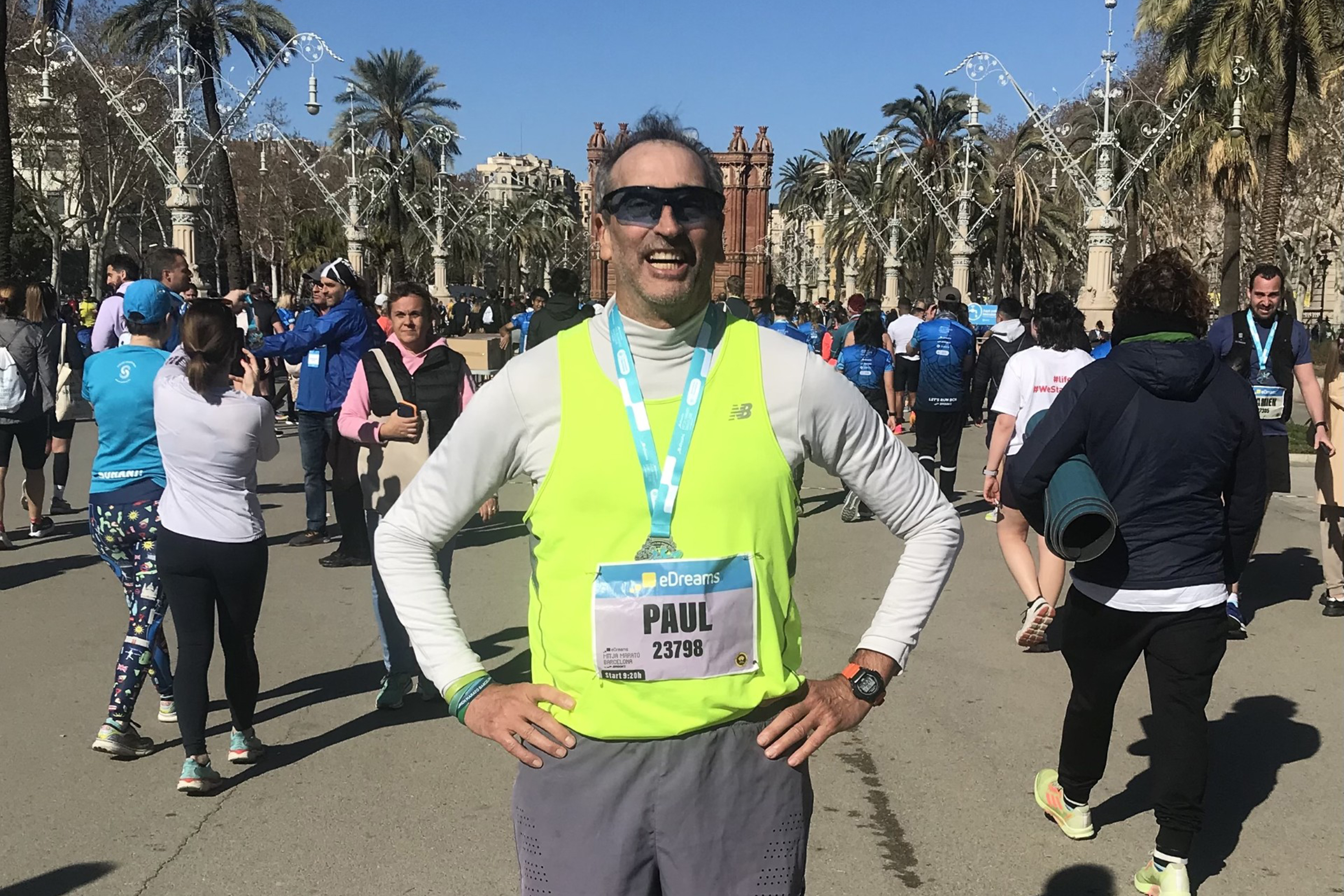Historian Explains the Fish Stick
-
-
Slice of MIT
- 1
Filed Under
Recommended

What do nuclear power, sports bras, and fish sticks have in common?
All are research topics for Paul Josephson PhD ’87, an emeritus professor of history at Colby College who examines the interplay of science, technology, and society.
“What draws it together for me is that many people see technology as a panacea, a cure-all. If there’s a problem, there must be a technology solution,” he says. Often, he finds, there are unintended consequences.
The fish stick, for example, emerged in 1953 to solve a problem caused by technological success. In the aftermath of World War II, technology was making it easier to catch and store fish. At the same time, consumers were returning to eating meat after years of rationing. So, the market was flooded with unpopular frozen fish. The solution? Bird’s Eye’s seafood laboratories in Boston sawed the fish into sticks, breaded and fried them, and the government ensured they became a school lunch staple.
“It’s a story of developing consumer demand, saving a collapsing fish market, and modern technologies like huge drifts nets, sonar, and flash freezing,” Josephson says. “It’s fascinating.”
It took me longer to get into Gorton’s archives than to get into some Soviet archives.
Of course, fish sticks didn’t solve the problem of overfishing—which underscores Josephson’s key message: It’s dangerous to assume that the problems technology causes can all be solved with more technology.
Time and again, he’s found, the human drive for speed and efficiency leads to huge social and environmental consequences. Nuclear power—one of Josephson’s key research areas—is an important example. “People say it’s the solution to global warming, but it’s extremely costly and it produces huge amounts of waste,” he says.
Conservation is a better approach, says Josephson, who calls himself a “neo-Luddite.” “We need to go forward with greater circumspection.”
A Cold War Beginning
Raised in Mount Lebanon, Pennsylvania, at the height of the Cold War, Josephson attended Antioch College in Ohio at a time when Marxism was a hot topic on campus. He studied Russian history to try to understand how Marxism had—as he puts it—“turned out rather badly.”
He went on to earn his master’s degree in Soviet studies from Harvard University in 1978, then discovered MIT’s new-at-the-time program in science, technology, and society. In the spring of 1986, while Josephson was still writing his dissertation on the history of Soviet physics, disaster struck the Soviet nuclear reactor in Chernobyl. Somehow, the media discovered Josephson’s area of expertise and began calling him for insights. He took two months off to write an article on the historical roots of the disaster before completing his PhD in 1987.
Physics and Politics in Revolutionary Russia, Josephson’s first book, was published in 1991. Today, he has more than 15 titles to his name, including Motorized Obsession: Life, Liberty and the Small Bore Engine (2007), Chicken: A History from Farmyard to Factory (2020), and Fish Sticks, Sports Bras, and Aluminum Cans: The Politics of Everyday Technologies (2015).
Featured on Jeopardy!
The latter was inspired in part by a visit to the Fishermen’s Memorial in Gloucester, Massachusetts. Surprisingly, Josephson says it was challenging to unearth the history of the fish stick. “It took me longer to get into Gorton’s archives than to get into some Soviet archives,” he says. (A competitor of Bird’s Eye, Gorton’s is famous for its fish sticks.)
Yet, the work brought him a measure of fame, leading to interviews with such media outlets as National Geographic and even a spot on the game show “Jeopardy!” (In January 2023, contestants were given this clue: History Professor Paul Josephson’s definitive article on these breaded items is titled “The Ocean’s Hot Dog.” The correct response was: What is the fish stick?)
While Josephson still writes about Russia, he notes that his research there became harder as its government grew more authoritarian starting in the early 2000s. So, over the years he has taken on a wider range of subjects, from the industrialization of nature in Amazonia to the story behind such consumer products as the sports bra. (The garment emerged in the late 1970s as women’s sports gained popularity and new synthetic fabrics became available, Josephson says. The first prototype was made of two jock straps.)
The former chair of the History Department at Colby, Josephson retired from teaching in 2021 but continues his research. He is currently writing about Russian militarization of the Arctic and investigating what animals and their histories can tell us about the nuclear age.
When he’s not reading and writing, you are likely to find him running. To date, he has completed 175 marathons. “It’s getting harder as I age, and I’m getting slower, but I’m still doing it,” he says.








Comments
Michael Hogan
Sat, 11/16/2024 10:14am
Techno-optimism revisited
How refreshing...another MIT alum who is skeptical of the idea that the answer to the problems created by technology is...more technology. Sometimes we're just trying to facilitate things we shouldn't be facilitating. We live in a bounded world, and just because we keep finding new ways to hack the boundaries for limited periods of time (see, e.g., the Green Revolution in 1960s India, which used petroleum-based fertilizers, a manifestly unsustainable hack), doesn't mean we can ignore them.